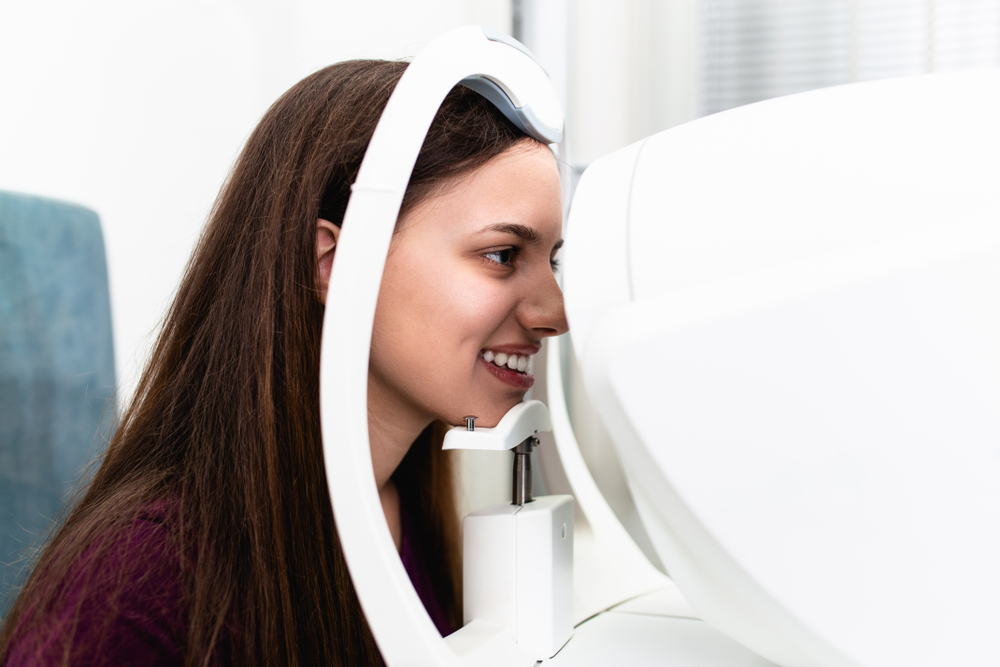
Your eyes are one of your most important senses, yet many people overlook routine eye care until a problem arises. A comprehensive eye exam is more than just checking your vision - it’s a critical part of maintaining both your eye health and overall well-being. At VoloVision, we’re dedicated to providing thorough, personalized eye exams that help detect issues early and keep your vision sharp.
What Is a Comprehensive Eye Exam?
A comprehensive eye exam is a detailed evaluation of your vision and eye health. Unlike a basic vision screening, which simply checks how well you see at certain distances, a comprehensive exam goes deeper. It assesses your ability to focus, eye coordination, eye pressure, and the internal and external structures of your eyes.
Early Detection Is Key
A comprehensive eye exam is a powerful diagnostic tool that can reveal much more than just how well you see. It plays a crucial role in identifying issues related to both your eye health and your overall well-being.
One of the primary things an eye exam can detect is refractive errors, such as nearsightedness (myopia), farsightedness (hyperopia), astigmatism, and presbyopia. These common vision issues affect how light is focused on the retina, and they are often the reason people need glasses or contact lenses.
Comprehensive exams also help detect eye diseases in their early stages. Conditions like glaucoma, cataracts, macular degeneration, and diabetic retinopathy can develop silently, without noticeable symptoms at first. Regular exams allow eye doctors to catch these issues early, when they’re most treatable.
In addition to eye-specific concerns, your eye exam can also uncover signs of systemic health problems. Because the eyes contain blood vessels and nerves that reflect what's happening in the rest of the body, issues such as high blood pressure, diabetes, high cholesterol, and even autoimmune disorders may be detected during a routine eye exam. This makes eye exams a vital part of maintaining your overall health.
What to Expect During a Comprehensive Eye Exam
When you visit VoloVision for a comprehensive exam, here’s what you can generally expect:
Medical History Review: We’ll start by discussing your vision concerns, lifestyle, and overall health history.
Visual Acuity Test: This standard eye chart test measures how clearly you see at various distances.
Refraction Assessment: Determines your exact eyeglass or contact lens prescription.
Eye Muscle Function Test: Checks how well your eyes move together and track objects.
Pupil and Peripheral Vision Testing: Assesses your field of vision and how your pupils respond to light.
Slit Lamp Examination: Allows your doctor to view the front and back parts of the eye under high magnification.
Tonometry: Measures your eye pressure, a key indicator for glaucoma.
Retinal Exam: Often done with dilation, this exam lets your doctor examine the retina, optic nerve, and blood vessels at the back of your eye.
Each test is painless and designed to give your eye doctor a complete picture of your eye health.
How Often Should You Have an Eye Exam?
For most adults and children, an annual comprehensive eye exam is recommended - even if you have no noticeable vision problems. However, some individuals may need more frequent exams, including:
People with diabetes or high blood pressure
Individuals with a family history of eye disease
Contact lens wearers
Seniors over the age of 60
Children with developmental or visual concerns
Our eye doctor can advise you on the best exam schedule based on your needs.
Protect Your Vision at VoloVision
Your eyes are constantly working, and they deserve regular attention. A comprehensive eye exam is one of the best ways to protect your vision and catch potential health concerns early. We’re committed to helping you see clearly and stay healthy with expert, compassionate care.
Schedule your comprehensive eye exam with VoloVision and take a proactive step toward clearer vision and better health. Visit our office in Southampton, Pennsylvania, or call (215) 357-8330 to book an appointment today.









